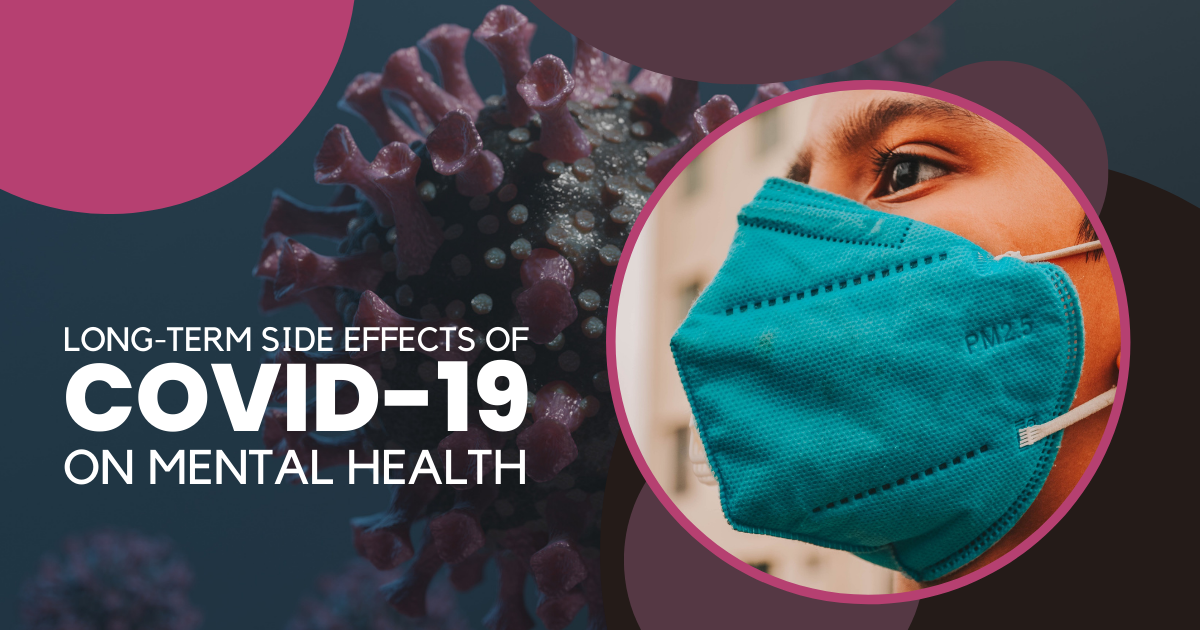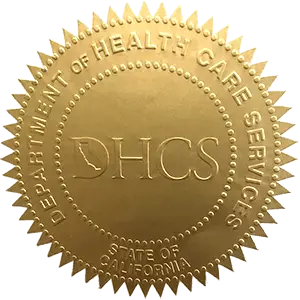The COVID-19 pandemic has had staggering effects on every part of life. The long-term side effects of COVID-19 include impacts on physical health, increasing rates of disability, business and economic devastation, and education effects. There are also many long-term side effects of COVID-19 that affect people individually, including mental health conditions.
The pandemic will take a long time to recover for society, people, and families.
Medical professionals and mental health care providers are just now starting to understand the pandemic’s deep effects of the pandemic itself and the COVID-19 virus on mental health and well-being.
Long and Post-COVID Conditions
According to the Centers for Disease Control and Prevention (CDC), some people infected with the virus causing COVID-19 can experience long-term effects.
- These effects are known as post-COVID conditions (PCC) or sometimes as long COVID.
- You might also hear it as long-haul COVID, post-acute COVID, chronic COVID, or post-COVID syndrome.
- These health problems aren’t well understood, but doctors and scientists think they could last for weeks, months, or even years.
- Long-term COVID symptoms are more often in people with severe illness, but anyone who’s been infected can experience them.
- Sometimes long symptoms even appear in people with no symptoms from COVID or who only experienced a mild illness.
- Most people who get sick with the virus get better within a few days or weeks. Post-COVID conditions, as a result, are those symptoms that occur at least four weeks after infection.
- There’s no specific test for these symptoms right now. Sometimes the symptoms will stay constant or go away after a few months following COVID-19 infection. For other people, the symptoms come and go intermittently.
The adverse effects most commonly reported include fatigue interfering with daily life, symptoms that get worse after physical or mental effort, and fever. Other psychological and physical symptoms commonly cited as lingering in COVID-19 patients include:
- Shortness of breath or difficulty breathing
- Chest pain
- Cough
- Heart palpitations (pounding or fast-beating heart)
- Problems concentrating or thinking (brain fog)
- Sleep problems
- Dizziness when standing (lightheadedness)
- Headache
- Feeling of pins-and-needles
- Changes in taste or smell
- Depression
- Anxiety
- Diarrhea
- Stomach pain
- Rash
- Joint or muscle pain
- Changes in the menstrual cycle
People with severe infections may have autoimmune medical conditions that last for weeks or months after their illness. They may also have multiorgan effects that can affect nearly every body system.
According to the CDC, people who are more likely to experience long-term symptoms include:
- Anyone who had more severe symptoms and illness—especially if they were hospitalized or needed intensive care
- People who didn’t get a COVID-19 vaccine
- People with multisystem inflammatory syndrome (MIS) during or after their illness
- Someone with underlying conditions before they were infected, such as heart disease
What About the Long-Term Side Effects of COVID-19 on Mental Health?
There’s some evidence, based on research from places like Johns Hopkins, that the virus can increase your risk for anxiety and depression, as well as other cognitive issues.
The Johns Hopkins Post-Acute COVID-19 Team clinic works with care professionals from different disciplines to understand how patients are recovering and what is affecting them.
- Researchers are looking at how the inflammation of the virus could lead to physical changes in the brain.
- In medical offices, professionals say they see higher levels of emotional distress and mood disorders, as well as anxiety and clinical depression.
- They’re also seeing more patients with sleep disorders and alcohol consumption problems.
- In a study recently published in The Lancet Public Health journal, serious COVID-19 illness is associated with a higher risk of long-term negative mental health effects.
- The findings suggested that non-hospitalized patients with a SARS-CoV-2 infection had a higher likelihood of experiencing depressive disorder symptoms up to 16 months after the diagnosis compared to people who were never infected.
- Patients who were bedridden for at least seven days had higher rates of both depression and anxiety compared to people who got sick but weren’t bedridden.
Other Ways the Pandemic is Affecting Mental Health
Researchers are trying to get a handle on the physical reasons some people may be experiencing long-term side effects of COVID-19 related to mental health, and some evidence points to inflammation.
Outside of that, there are other ways the pandemic affects mental health that isn’t necessarily about the illness but are more about mitigation practices.
People have been experiencing social isolation for years, and their usual activities and daily lives have completely shifted.
There was a lack of social connectedness feeding into these problems with mental health and higher rates of depression, anxiety disorder, and even suicidal thoughts and behaviors.
Many students weren’t in in-person school. They were also being bombarded with negative and scary news and fears about not only personally getting sick but causing loved ones to catch the virus.
It’s not only young people feeling these effects.
- Along with depression and anxiety, rates of substance abuse are soaring, as are overdose deaths.
- Deaths due to fentanyl are exceptionally high.
- People are reporting they are drinking more as a coping mechanism, and there are still very many feelings of sadness and despair among many, two years after the pandemic affected America in a widespread way.
- People for long periods couldn’t receive treatment for depressive symptoms or other mental health care in person in the typical settings because of shutdowns.
- Many people stopped receiving treatment for mental disorders, including behavioral therapy, during this time.
- Treatment and support groups were also interrupted at the height of the pandemic for people with substance use disorders.
What Is Post Covid Anxiety?
Post covid anxiety or reentry anxiety is the nervousness associated with returning to everyday life after the covid 19 pandemic. Therapists see an increase in anxiety and social anxiety disorders related to returning to everyday life. Although most of these anxiety disorders are found among people who already have anxiety disorders, others have also shown the signs. According to one 2020 study, reentry anxiety is similar to Post Traumatic Stress Disorder (PTSD).
How to Deal with Post Covid Anxiety Effectively
Just like our bodies can learn fear, we can also teach them not to be afraid in certain situations. Using this principle, therapists use the exposure and response prevention (ERP) treatment for people with anxiety. The treatment helps people “unlearn” being afraid of certain things by gradually exposing them to the stimuli. The idea is to help reinforce confidence in the person to handle the situation to reduce their fear response. Using the same principles from ERP, we have the following tips to help you deal with reentry anxiety.
1. Understand yourself
Your number 1 priority should be to understand how you feel. With that understanding, you can focus on overcoming re-entry anxiety and minimizing these symptoms. Make a list of activities that you’d like to resume or that you’ll need to resume. Sort them according to their level of stress or anxiety.
2. Take things slowly
Give yourself time to adjust. Returning to your routine in a hurry may likely exacerbate your post-pandemic anxiety. So instead, begin slowly. Starting slowly could mean breaking up more anxious-inducing activities into smaller steps. For example, if you haven’t eaten out in a while, order takeout and begin eating in a public place. Spend time with your vaccinated friends, or start venturing out more in places with fewer people. Then you can get a drink somewhere outside before working your way up to eating a full meal outside.
3. Do away with negative thoughts
Take note of your thoughts when you plan to do something you haven’t done in a long time. Are you convincing yourself that it will be frightening and challenging? Or maybe you are already creating a contingency plan if things don’t turn out well. Anxiety is frequently associated with negative and sometimes irrational thinking. Instead of dwelling on these thoughts, concentrate on changing your thinking and perception to be more positive. This approach may entail not constantly checking the news or unplugging from social media. Whatever you do, avoid worries and always remember your thoughts are not facts. This change may appear subtle, but it has a significant impact on how you perceive the world, your fears, and your behavior.
4. Take deep breaths
Breathing exercises are another effective way to deal with post-pandemic fears. When you begin to feel overwhelmed or anxious by a situation, you can use these breathing exercises to help you calm down and refocus. Taking slow and deliberate deep breaths will help your brain relax and feel calmer.
5. Take Care of Yourself
Practicing self-care is a great way to improve your mental health while dealing with anxiety. Try to eat healthily, get enough sleep, and exercise regularly. Also, ensure you recognize and reward yourself as you make brave changes in your behavior. If you are nervous about returning to the office, you might make plans to get coffee midday as a reward for facing your discomfort. When you incorporate these habits into your daily routine, you may notice significant improvements in your overall well-being.
Mental Health Treatment in Orange County, CA
You aren’t alone if you’re experiencing symptoms of a mental illness, whether due to potential long COVID symptoms or the experience of the pandemic itself. What you’re going through is very much real. The same is true if your child or teen is experiencing these symptoms.
You can do certain things in your life to help reduce your symptoms, like reaching out to people you love when you need to talk and taking care of yourself physically. A healthy diet and physical activity can go a long way in helping you heal from the effects of the pandemic.
There are other things you can’t do on your own. A mental health professional can provide counseling and might also benefit from medication.
If you’re ready to talk to someone about what you’re experiencing, the team at Story Wellness is ready to connect and discuss some options; call us at (866) 476-2823.





